_600.png)
Relevance of MUN For High School Student in India
MUN for high school student in India represents an educational live-action simulation targeting Indian high school students which teaches them about critical global diplomatic relations while understanding international politics. In this immersive experience students emulate diplomatic representatives of various international nations. Through simulated United Nations conferences students engage in debate and negotiations to solve difficult global issues. MUN goes beyond being a series of weekend conferences hosted by Indian high schools because it leads its participants toward personal and professional advancements.
1. Global Perspective Development
Model United Nations (MUN) help the students gain the ability to transcend their local environment. It enables them to grasp the intricate nature of global diplomacy. Model United Nations (MUN) conferences educate students about world issues and/varied cultural viewpoints and multiple governing systems through country-specific character assignments. The real-world interactions at MUN conferences expand the worldwide comprehension of Indian teenagers to exceed simple textbook knowledge.
2. Improved Interpersonal Skills
The ability to clearly and confidently communicate is needed to participate in MUN. It is expected of students to do a lot of study, write detailed position papers, and present arguments in a convincing way. Indian high school students often have trouble learning how to speak in public. MUN for high school student in India gives them an organised place to get over stage fright, improve their speaking skills, and learn how to have diplomatic conversations.
3. Critical Thinking and Research Proficiency
Global problems, country policies, and international treaties need to be studied in depth for MUN conferences. The academic concept helps students grasp deep material while uniting opposing concepts to develop powerful assertions. Memorization through rote learning maintains its position as the primary education method in India. But MUN helps in the practical applications effectively.
4. Networking and Interpersonal Skills
MUN for high school student in India help the students gain from unique networking possibilities. It brings them into contact with others who will help them advance both scholastically and professionally. MUN provides opportunities to learn important skills which include negotiation skills alongside compromise abilities and unity building methods.
5. College and Career Preparation
Many well-known Indian and foreign universities see MUN participation as an important achievement outside of school. Researching, speaking in public, and negotiating diplomatically are skills that are highly valued in both school and the workplace. MUN is a great way for people who want to work in international business, law, diplomacy, or international relations to get started.
6. Confidence and Leadership Development
MUN events push students beyond of their comfort zones. It takes courage and leadership to speak up for a country's interests, suggest solutions, and get involved in difficult talks. These immersive activities help Indian high school students develop self-confidence, quick thinking, and leadership skills.
7. Understanding Contemporary Global Challenges
MUN for high school student in India learn about important global problems like human rights, international conflicts, and climate change. This fosters global citizenship and social responsibility in Indian teens by helping them grasp global issues.
MUN as an Educational Revolution
MUN for high school student in India is more than just a fun practice outside of school. It is a life-changing way to learn. MUN provides a unique opportunity for Indian high school students to build life skills in an increasingly linked world.
These conferences link academic learning to real-world complexity, preparing students for exams and global citizenship. MUN provides insights, skills, and viewpoints that traditional classrooms cannot as Indian education evolves.
FAQ
Why is MUN important for students?
Students benefit from MUN because it fosters debate, teamwork, problem-solving, leadership, confidence, and global awareness.
Is a MUN certificate useful in India?
In India, a MUN certificate adds value to professional profiles and college applications by showcasing leadership, communication, and analytical abilities.
Is MUN actually useful?
MUN is beneficial because it improves leadership, communication, and critical thinking abilities while exposing participants to global issues and enhancing their academic and professional opportunities.
Related Blogs
-

19-Jan-2026 How to Prepare for Your First MUN?
-
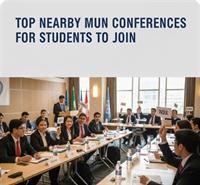
24-Dec-2025 Top Nearby MUN Conferences for Students to Join
-
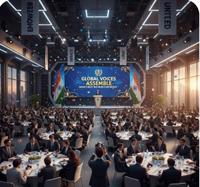
27-Nov-2025 Global Voices Assemble India Next Big MUN Conference
-
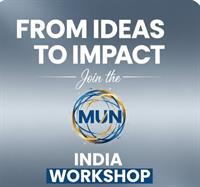
13-Nov-2025 From Ideas to Impact Join the MUN India Workshop
-
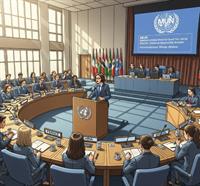
14-Aug-2025 What Is A Conference In MUN?
-
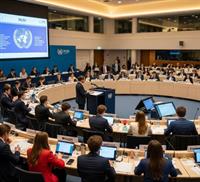
07-Aug-2025 What Does the MUN Do?
-

03-Jul-2025 Ways to Research for a Model UN Position Paper
-
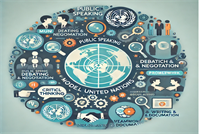
28-Mar-2025 What skills do you gain from Model United Nations?
